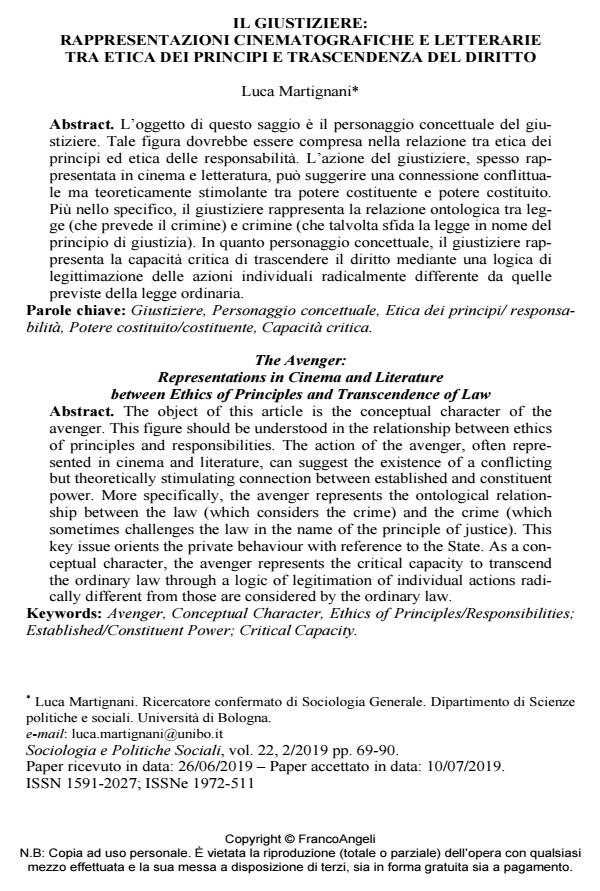The Avenger: Representations in Cinema and Literature between Ethics of Principles and Transcendence of Law
Journal title SOCIOLOGIA E POLITICHE SOCIALI
Author/s Luca Martignani
Publishing Year 2019 Issue 2019/2
Language Italian Pages 22 P. 69-90 File size 255 KB
DOI 10.3280/SP2019-002005
DOI is like a bar code for intellectual property: to have more infomation
click here
Below, you can see the article first page
If you want to buy this article in PDF format, you can do it, following the instructions to buy download credits

FrancoAngeli is member of Publishers International Linking Association, Inc (PILA), a not-for-profit association which run the CrossRef service enabling links to and from online scholarly content.
The object of this article is the conceptual character of the avenger. This figure should be understood in the relationship between ethics of principles and responsibilities. The action of the avenger, often represented in cinema and literature, can suggest the existence of a conflicting but theoretically stimulating connection between established and constituent power. More specifically, the avenger represents the ontological relationship between the law (which considers the crime) and the crime (which sometimes challenges the law in the name of the principle of justice). This key issue orients the private behaviour with reference to the State. As a conceptual character, the avenger represents the critical capacity to transcend the ordinary law through a logic of legitimation of individual actions radically different from those are considered by the ordinary law.
Keywords: Avenger, Conceptual Character, Ethics of Principles/Responsibilities; Established/Constituent Power; Critical Capacity.
Luca Martignani, Il giustiziere: rappresentazioni cinematografiche e letterarie tra etica dei principi e trascendenza del diritto in "SOCIOLOGIA E POLITICHE SOCIALI" 2/2019, pp 69-90, DOI: 10.3280/SP2019-002005